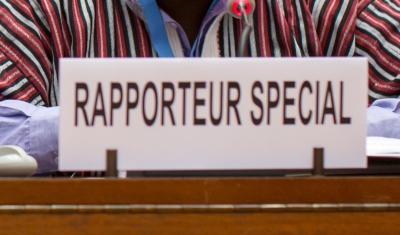Enhancing National Reporting and Implementation of Human Rights through Coordinated Engagement at the Local and Regional Levels: The Role of NMIRFs
Event


Adobe Stock
23 July 2025, 10:00–12:30 and 14:00–16:30 CEST
Palais des Nations, Room H-207-208-209 – Geneva / Online
Co-organized by the Geneva Human Rights Platform, OHCHR, and the Global Cities Hub, this international seminar explores how national mechanisms for implementation, reporting and follow-up (NMIRFs) can better integrate the capacities, data, and experiences of local and regional governments (LRGs) in advancing human rights implementation and reporting.
Despite growing recognition of the crucial role of LRGs in promoting and protecting human rights, persistent gaps remain in their engagement with international human rights mechanisms. This seminar aims to identify good practices, challenges, and entry points for enhancing coordination and participation across all levels of government, with particular focus on federal and devolved systems.
Objectives
- Foster peer exchanges on experiences and practices in linking NMIRFs with LRGs.
- Highlight challenges and opportunities in data sharing, coordination, and follow-up.
- Generate actionable recommendations on improving national-local cooperation for human rights reporting and implementation.
Format and Methodology
The seminar will feature a plenary session followed by three break-out discussions, including one dedicated to federal systems and one open to remote participants. The discussions will span the full cycle of state engagement with human rights mechanisms—reporting, review, follow-up, and implementation.
Expected Outcomes
- Identification of good practices and persistent challenges in NMIRF–LRG cooperation.
- Recommendations tailored to different political and administrative contexts.
- Strengthened understanding of how local engagement improves data quality and implementation ownership.
Registration and Participation
The international seminar will take place on 23 July 2025 in the H building of Palais des Nations, Geneva, room H-207-208-209. It will consist of two hybrid meetings of two hours, from 10am to 12pm and from 3pm to 5pm, Geneva time. Simultaneous interpretation through Zoom will be provided in English and French. Registration is open on the following Indico link: https://indico.un.org/event/1018351/
Background Resources













